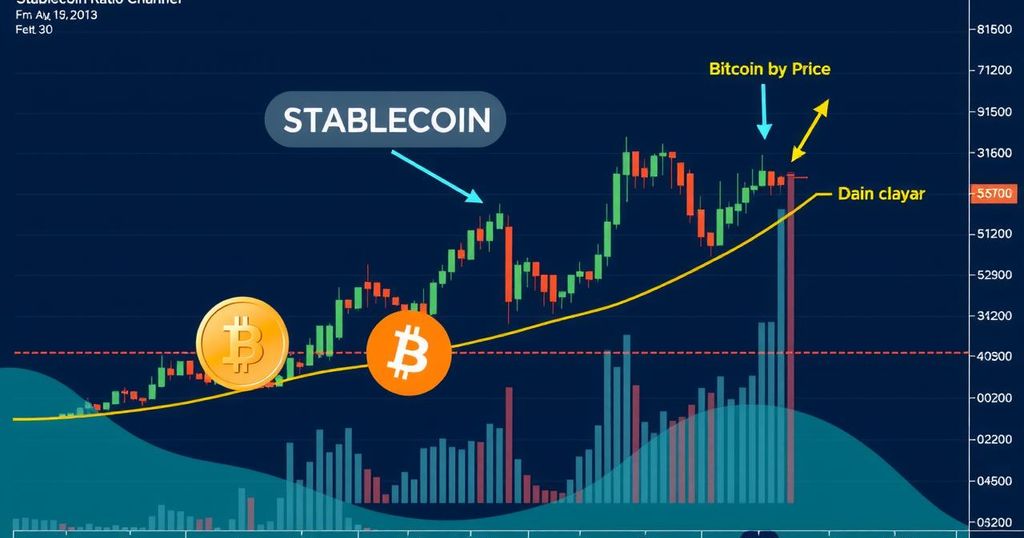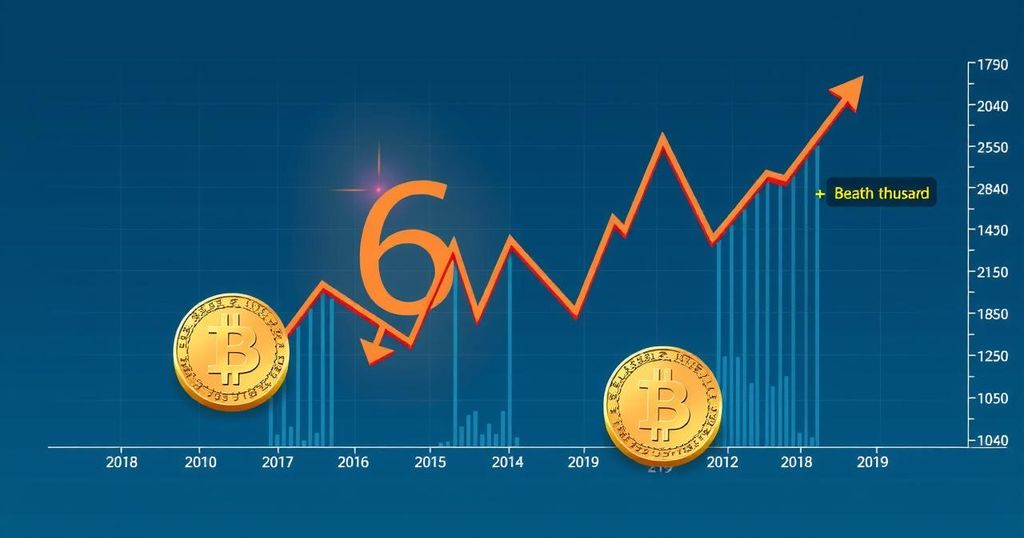Bitcoin Falls Below $90K Amid Speculation and Economic Concerns
Bitcoin has dipped below $90,000 for the first time in months, reflecting a 20% decline from January’s highs. Factors such as increased speculation in meme coins, a major crypto theft, and wider economic concerns have shaped this downturn. Analysts urge caution in the current market conditions, highlighting ongoing regulatory challenges and pressures from various macroeconomic factors.
On Tuesday, Bitcoin experienced a sharp decline, dropping below $90,000 for the first time in several months. The leading cryptocurrency fell below this critical threshold as risk-off sentiment spread, impacting not only Bitcoin but also traditional assets such as stocks. This downturn is attributed to rising speculation within the meme coin market and a significant recent cryptocurrency hack, both of which have undermined investors’ confidence.
With Bitcoin’s value decreasing to approximately $86,000, it now reflects more than a 20% drop from its all-time high recorded in January. Market analysis from JPMorgan suggests that this negativity is pervasive across the cryptocurrency sector, highlighted by the outflow of $544 million from cryptocurrency exchange-traded funds (ETFs) last week. Analysts like Geoff Kendrick from Standard Chartered caution against buying Bitcoin at this time, forecasting potential further declines into the low $80,000 range.
The optimism that initially buoyed Bitcoin following Donald Trump taking office has waned as the reality of macroeconomic pressures sets in. Concerns about tariffs, inflation, high interest rates, and skepticism surrounding the performance of AI technology stocks have compounded negative sentiment towards cryptocurrencies. The recent failures of three state-level proposals for Bitcoin reserves in Montana, North Dakota, and Wyoming further demonstrate the ongoing political and regulatory obstacles facing the cryptocurrency market.
In addition to market pressures, Bitcoin’s decline is exacerbated by turmoil within the meme coin sector, which has cast a shadow over the broader cryptocurrency landscape. The sector has faced scandals that have contributed to a loss of trust in available digital assets. Altcoins such as Solana and Ethereum have also suffered significantly, reporting declines of 41% and 28%, respectively, this month.
Furthermore, the cryptocurrency space faced a severe shock last week with what may be the largest theft in the industry’s history. The exchange Bybit announced that around $1.5 billion worth of Ethereum was stolen during a hack. Marc Tillement from the Pyth Data Association commented on the hack, warning it underscores the vulnerabilities present in centralized exchanges and may prompt regulatory scrutiny.
Overall, industry analysts anticipate that the fallout from such incidents could have lasting implications on market dynamics and investor behavior. Consequently, the ongoing regulatory discourse and market shifts will serve as critical variables affecting Bitcoin’s future trajectory. As many investors remain wary of potential vulnerabilities, they await developments from the future economic and regulatory landscape that may reinvigorate market confidence.
In summary, Bitcoin’s value has fallen dramatically below $90,000 amidst rising pessimism that has also affected the stock market. The decline is linked to heightened speculation in meme coins and a significant industry hack, raising concerns about security and economic conditions. As regulatory uncertainties persist alongside market bearishness, analysts advise caution to investors regarding potential further declines.
Original Source: markets.businessinsider.com








Post Comment